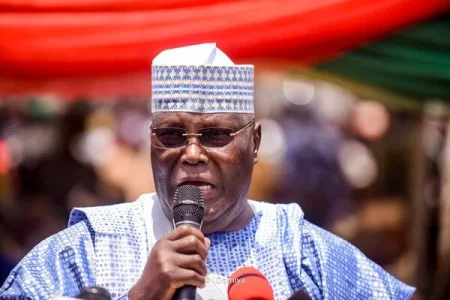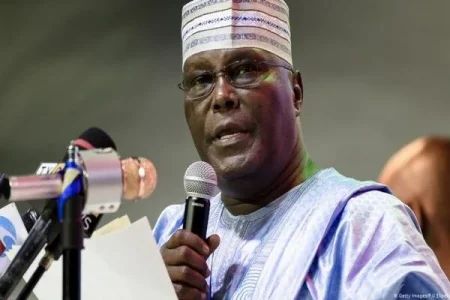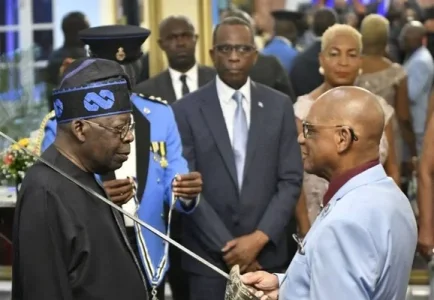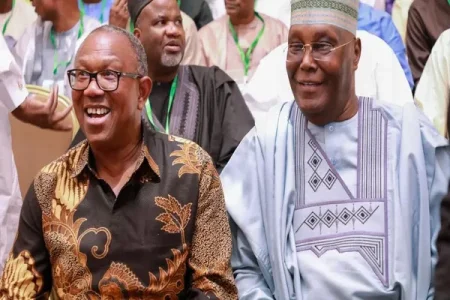
Former Vice President Atiku Abubakar has launched scathing criticism against Minister of Works, Dave Umahi, over the handling of the Lagos-Calabar coastal project, labeling it as "scandalous" and alleging deception in budget allocation.
In a statement released from his media office in Abuja on Thursday, Abubakar voiced concerns over the staggering estimated cost of the project, which he claimed could reach a whopping N15.7 trillion. This estimation, according to Abubakar, is based on the N1.06 trillion earmarked by Umahi for the initial phase of the project, covering 47.47 kilometers.
Umahi, however, refuted Abubakar's claims during an interview with TVC, stating that the project's total cost would be N15.6 trillion, with separate costs for the railway component. Contrary to Abubakar's assertions, Umahi clarified that the project would not be under a public-private partnership (PPP) arrangement but would involve government financing ranging from 15% to 30%.
Abubakar further criticized the disparity between the budget allocation for the project in the 2024 budget and the actual funds allocated. While the budget approved by the National Assembly stood at N500 million for the Lagos-Port Harcourt coastal highway, Abubakar revealed that the Umahi administration had released an astounding N1.06 trillion, highlighting a significant deviation from the approved budget.
The former vice president raised concerns about the lack of transparency in the project's procurement process, citing the absence of competitive bidding and the alleged favoritism towards Hitech, a company with reported ties to prominent political figures. Abubakar emphasized the need for accountability and urged the National Assembly to fulfill its oversight responsibilities.
In response to Umahi's claims of Hitech's exclusive competence for the project, Abubakar challenged the assertion, citing precedents of similar projects undertaken by reputable firms globally. He accused Umahi of attempting to deceive Nigerians and called for a thorough investigation into the project's handling.
Abubakar's criticisms underscore growing concerns over the transparency and accountability of infrastructure projects in Nigeria, prompting calls for greater scrutiny and oversight from government institutions.




